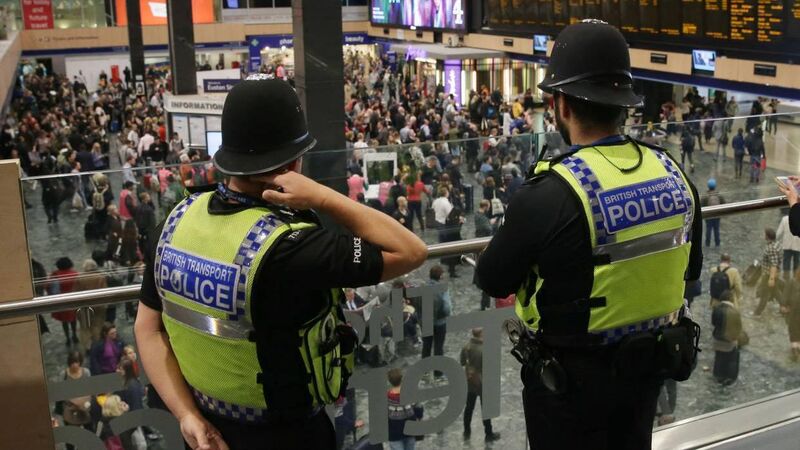Get tough on bus and train louts and turn their music down too!

It’s instructive, then, that I have witnessed two incidents of horribly ill-mannered, even criminal behaviour on public transport in the past few years.
The first was a nasty scene up in Dublin, when the eldest lad and I were on a train out of the Aviva Stadium after a match.
The carriage was packed, and it was all a bit chaotic, but it soon became apparent that an aggressive and possibly high ‘Dub’ had picked out three youths on their way home from the match and was intimidating them.
It was hard to know how the situation had arisen, but one of the lads appeared to have been ordered to go to another carriage to a friend who had cash, to borrow money from him and give it to this aggressive fella - something to do with damage to his bicycle, which looked fine to me.
The second incident happened on a bus here in Cork, and involved an arrogant young man who was playing his music very loudly. The driver stopped the bus and asked the man to use headphones or turn his music down.
The ill-mannered lad responded to this reasonable and amiable request rudely and aggressively, and a shouting match ensued, during which the passenger whipped out his phone and began recording their exchanges, even though he was clearly in the wrong.
The driver wisely returned to his wheel and took off, clearly this wasn’t the first time he had been threatened with ‘exposure’ online by a clown with a towering sense of entitlement and misplaced grievance.
Which is why there was undoubtedly a warm welcome this week when the debate about a need for a security presence on our buses and trains was reignited.
There is a political wrangle ongoing about whether this should be carried out by an arm of An Garda Síochána or a separate, new type of police force.
I’m happy to leave that for the suits to sort out - suffice to say that some kind of security presence is urgently required to keep the peace on public transport, especially if we want to expand the services in the coming years and persuade more people to abandon their cars and use them.
It was interesting that Tánaiste and Cork TD Micheál Martin used an interview this week to turn crime and public safety into a hot topic of debate in the forthcoming election.
It may have seemed an odd choice, given the other big issues around, but Micheál has been in the game for a long time, and knows a fertile area for votes when he sees one.
You could make the argument he was also staking a claim for Fianna Fáil to plant a flag in the law and order territory that has traditionally been seen as a strong suit for his Coalition allies (and soon to be rivals, albeit briefly), Fine Gael.
Micheál is adopting the slogan of ‘making Ireland safe again’ and wants to make the streets - especially cities such as Dublin and Cork - more secure places for people to work, live, and visit.
He wants to extend this to public transport, and said: “There is a lot of anti-social behaviour (on it), and we need to deal with that for the safety of those working and for the safety of patrons.”
The Tánaiste even attempted to avert a stand-off with Garda Commissioner Drew Harris - who has repeatedly ruled out a specific transport police force.
“If the gardaí don’t want to do it,” said Mr Martin, “then we could have a separate police operated by the National Transport Authority or by transport companies.”
Calls for such a task force have been echoed by SIPTU, and a spokesman for the union this week outlined why security needs to be beefed up for its members working on buses and trains.
Andrew Quigley said there were incidents of urination, defecation, drugs and alcohol, and that drivers regularly face abuse and anti-social behaviour.
One time, he said, an air rifle was discharged on a bus, and in another incident, two people urinated on the upper deck, and the driver got covered in it.
It’s little wonder we struggle to find drivers to work on public transport when such louts are left to run amok unchecked.
“There’s a lot being spent to get people to use public transport, but people will only use it when they feel safe,” pointed out Mr Quigley.
Their proposal would also include Public Transport Assistance Units of specifically trained social care intervention officers to deal with underlying issues, such as substance abuse and homelessness, rather than within a purely legal framework.
This idea appears to me to be a no-brainer, and it would be good to see more parties backing it, alongside a commitment to generally make our streets and society safer from anti-social elements.
If such a force comes into being, it would be good to see it follow the ‘broken window’ theory of crime enforcement. This states that visible signs of anti-social behaviour, even apparently small-scale ones, if left unchecked, only encourage greater incidents of criminality to flourish.
A new public transport force would thus start on the small-scale offenders - such as the idiots who insist on playing their music and videos loudly on buses and trains - and system change would begin.
I was going to suggest starting by tackling the ‘man-spreaders’ and people who take up extra seats with their bags too - but that’s probably a whole different column!







 App?
App?




